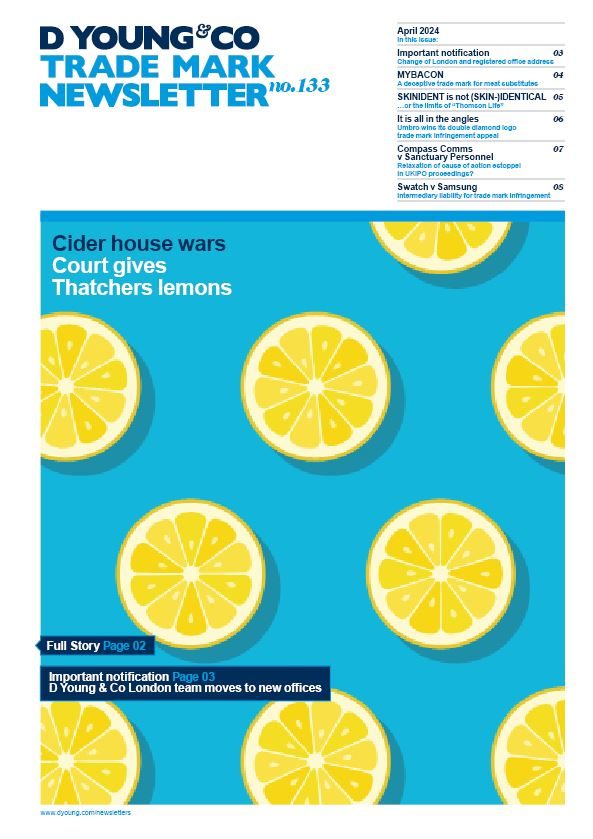Burgerista Operations v Burgista Bros: invalidity and infringement
In Burgerista Operations v Burgista Bros, the Intellectual Property Enterprise Court (IPEC) has held that the EU trade mark “BURGERISTA” for restaurant, canteen and bar services is valid and infringed by the sign “BURGISTA” for the same services.
Burgerista and Burgista
The claimant, Burgerista Operations, was an Austrian company operating a chain of 18 burger restaurants across Austria and Germany. It was established in 2012 and registered an EU trade mark for BURGERISTA in class 43 (including restaurants) in 2014.
The defendant was a company which had taken a licence to open twenty restaurants using the sign “BURGISTA BROS” in the UK from a Hong Kongese company. Its first franchise was opened in 2015.
Following the launch of the franchise, the claimant commenced trade mark infringement proceedings against the defendant on the basis of a likelihood of confusion with the trade mark (art. 9(2)(b) of Regulation (EC) 207/2009) and detriment to the reputation of the trade mark (art. 9(2)(c) of Regulation (EC) 207/2009). It fell to the court to decide whether the trade mark was valid and infringed.
Validity
On validity, it was argued that the mark was descriptive. The defendant reasoned that “BURGER” denotes the product and “…ISTA” is a suffix which denotes, among other things, enthusiasm for that which preceded it, similar to barista or fashionista. In support of its position, the defendant relied on the Oxford English Dictionary, Oxford Advanced Learner’s Dictionaries, Urban Dictionary and Reverso (an online translation tool).
The court held that the Urban Dictionary and Reverso were not persuasive, as there was no evidence of how they were compiled. As to the Oxford English Dictionary and Oxford Advanced Learner’s Dictionaries, the court held there was no evidence of the position as at 2014 (the evidence having being compiled in 2017).
As a result, the court concluded that the trade mark was valid.
Infringement
As to likelihood of confusion, the court appears to have been persuaded by the evidence of the claimant’s Chief Executive Officer, Mr Werner, as follows:
“First, he googled ‘burgerista’. The second entry on the results page consisted of a map of London identifying three restaurants, with their contact details below, all of them [the defendant’s] Burgista restaurants. Secondly, he exhibited a page from a website called ‘Ourvintage.Life’ headed ‘Burgista’. It was an entry about one of [the defendant’s] restaurants. There was a hashtag at the bottom: #burgerista. Thirdly there was an Instagram page from a blog of someone called Dimitar Popov. This featured a picture of food in a Burgista restaurant with hashtags that included #burgerista, #london and #burgista. Finally there were copies of pages from a blog by people who style themselves ‘Londonistas’ ... On 30 January 2017 two of them posted an item about [the defendant’s] Burgista restaurant in Baker Street. It was headed ‘JANUARY: BURGERISTA’. The discussion included this … ‘We started the year off with a new burger joint we discovered in Baker Street: Burgerista…and well, we’re the Londonistas so it seemed like the perfect place to start off this year’s burgers.… Overall…a thumbs up for Burgerista!” (Emphasis added.)
With regard to detriment, it fell to be determined whether the trade mark had a reputation. The court noted that the reputation of the trade mark was to be assessed on the date on which the “BURGISTA BROS” sign was first used, namely July 2015. It then summarised the jurisprudence on reputation as follows: “it can be concluded that if the market for the goods or services for which a trade mark is registered [extends across the entire public, for example fruit drinks] and the mark is known throughout a member state the size of Austria, this will constitute knowledge of the mark among a significant part of the public of the EU [and] the mark will qualify for the status of having a reputation in the Union.”
Applying this to the facts of the case, the court held that the mark did not have a reputation. It reasoned that: “In July 2015, the trade mark was far from being known throughout Austria. It had not become known outside Austria, save possibly to a very limited extent in Monchengladbach. It was known in two local areas of Vienna, two in Linz, one in Salzburg and one in Pasching. No figure has been attempted for the share of the European Union restaurant business held by the restaurants trade under the mark, but it must have been very small indeed, even if presented as a share of the burger restaurant business. Marketing was largely confined to social media sites, although it is not clear how much of this had been done by July 2015.”
Case details at a glance
Jurisdiction: England & Wales
Decision level: IPEC
Parties: BURGERISTA OPERATIONS GmbH (claimant) and BURGISTA BROS LIMITED, BURGISTA LIMITED, BURGISTA BROTHERS LIMITED, UK PROSPER LIMITED, HAMID REZA MOGHIMI, and HOSSEIN KHETRIYAN (defendants)
Citation: [2018] EWHC 35 (IPEC)
Date: 12 January 2018
Full decision (bailii): http://dycip.com/burgerista
